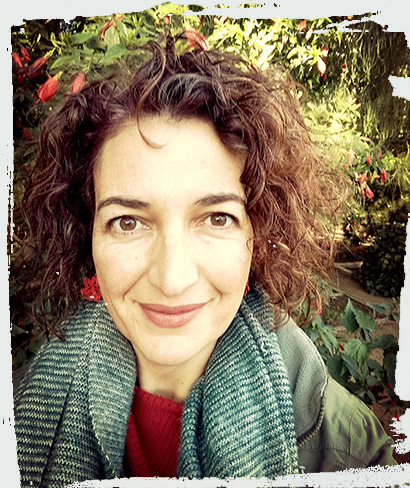The principle of participative work methodology derives from some fundamental premises based on the respect for the local cultural precepts, particularly aspirations regarding quality of life, according to the understanding of its inhabitants with a view to reinforcing their identity. The dialogic relation and the promotion of autonomy are also among the precepts of participative methodology, since work is not carried out by groups that are foreign to their conception, but rather by individuals privy to the foundational concepts of the project, which is methodologically inspired in critical pedagogy, with a view to social transformation
(Brasil, Mário Chagas, Eneida B. Rocha, Marcelle Pereira, Cláudia Rose, Inês Gouveia & Wélcio de Toledo, 2010. Inspired in Juan Bordenave work, Paraguay 1983)
The community museum is a process, rather than a product. It integrates complex processes of constitution of the collective community subject through reflection, self-knowledge and creativity; processes that consolidate community identity by legitimizing its own histories and values; processes that improve the quality of community life, through multiple projects for the future; and processes that strengthen the community’s capacity for action through the creation of networks with similar communities
(México, Teresa Morales, 2010)
Museums need to find answers to what it means to be part of a participative culture, a culture in which members believe that their contributions matter and feel some degree of social connection with one another. In documenting contemporary culture, participative projects add new perspectives to collections. At the same time they provide participants with a better understanding of the specificity of museum work. This better understanding fosters people´s sense of ownership in a museum…
(The Netherlands, Meijer-van Mensch & Tietmeyer, 2013)
As an ecology of knowledges, post-abyssal thinking is premised upon the idea of the epistemological diversity of the world, the recognition of the existence of a plurality of knowledges beyond scientific knowledge. This implies renouncing any general epistemology. Throughout the world, not only are there very diverse forms of knowledge of matter, society, life and spirit, but also many and very diverse concepts of what counts as knowledge and the criteria that may be used to validate it.
(Portugal, Boaventura de Sousa Santos, 2007)
I define a community museum as one which grows from below, rather than being imposed from above. It arises in response to the needs and wishes of people living and working in the area and it actively involves them at every stage while it is being planned and created and afterwards when it is open and functioning. It makes use of experts, but it is essentially a co-operative venture, in which professionals are no more than partners in a total community effort
(France, Hugues de Varine, 1993)
Não existem patrimónios inócuos nem “estórias” de um só sentido, todo este campo da memória social e do Património Imaterial é fluído e assumidamente polissémico, na maior parte das vezes conflituante, daí que só faça sentido trabalhar a noção de património em rede e a várias vozes, na lógica de uma construção permanente, onde o contraditório ressalte, pois é aí que reside a vitalidade do sistema e do seu fulcro criador
(Portugal, Isabel Victor, 2010)
The value concept is central in understanding human behaviour. A value is something that has to be recognized as valuable, so it has to become explicit, that is: consciously recognized as a value and termed as such. Values have been the subject of theoretical consideration in many disciplines and areas of study including ‘education, political science, economics, anthropology […] When we think of values, we think of what is important to us in our lives, e.g. security, freedom, wisdom, pleasure, independence
(The Netherlands, Lugmina Horlings, 2015)
…it is a museology devoid of financial resources or sophisticated knowledge, often also featuring out-of-date ideologies and paradigms […] it is also a museology that expresses the cultures of our time, the culture of the mix, the expression of a society in transformation.
Such museums and museological processes are, in our understanding, the deep expression of Portugal’s contemporary museology.
And, in this sense, this museology of daily life turns out to be an essential component of change itself.
It is, thus, neither rupture nor a marginal phenomenon, but instead it is the fruit and seed of a more democratic society, of a more free associativism, of a municipalism that are more aware of a new development model that favours decentralisation and the consequent valorisation of local resources - both human and natural
(Portugal, Mário Moutinho, 1996)
Cultural mapping, counter-mapping, community-based mapping, participatory mapping – a broad range of cartographic practices have emerged over the last three and a half decades to bring alternative indigenous and local perspectives to the attention of those who hold power and who control what usually appears on official maps
(UNESCO, “The role of participatory cultural mapping”, 2008)
Estamos hartos de museos que intentan armar narraciones históricas de una sociedad, comunidad, equipo, nación, pueblo, empresa o especie. Todos sabemos que las historias cotidianas y ordinarias de los individuos son más ricas, más humanas y mucho más gozosas que las historias de culturas colosales
(Turkey, Orhan Pamuk, 2012)
… museums are places of remembering and forgetting, just as they are places of power, of fight, of conflict, of silence, of resistance; in certain instances, they may even be non-places. Every attempt to reduce museums to a single aspect runs the risk of not accounting for the complexity of the museum setting in the contemporary world.
(Brazil, Mario Chagas, 2010, English version)
La hegemonía cultural trae como consecuencia el predominio de ciertas creencias, valores y la estructuración patriarcal de la cultura que excluye cualquier otra concepción de la misma creando la idea de que sólo existe una corriente de interpretación de la historia, la cual está siempre escrita por los ganadores. Estos discursos culturales hegemónicos son los que se reproducen tanto en colegios, institutos, medios de comunicación como en museos, que es la institución que aquí nos atañe
(Spain, María Acaso & Andrea de Pascual, 2014)




















































